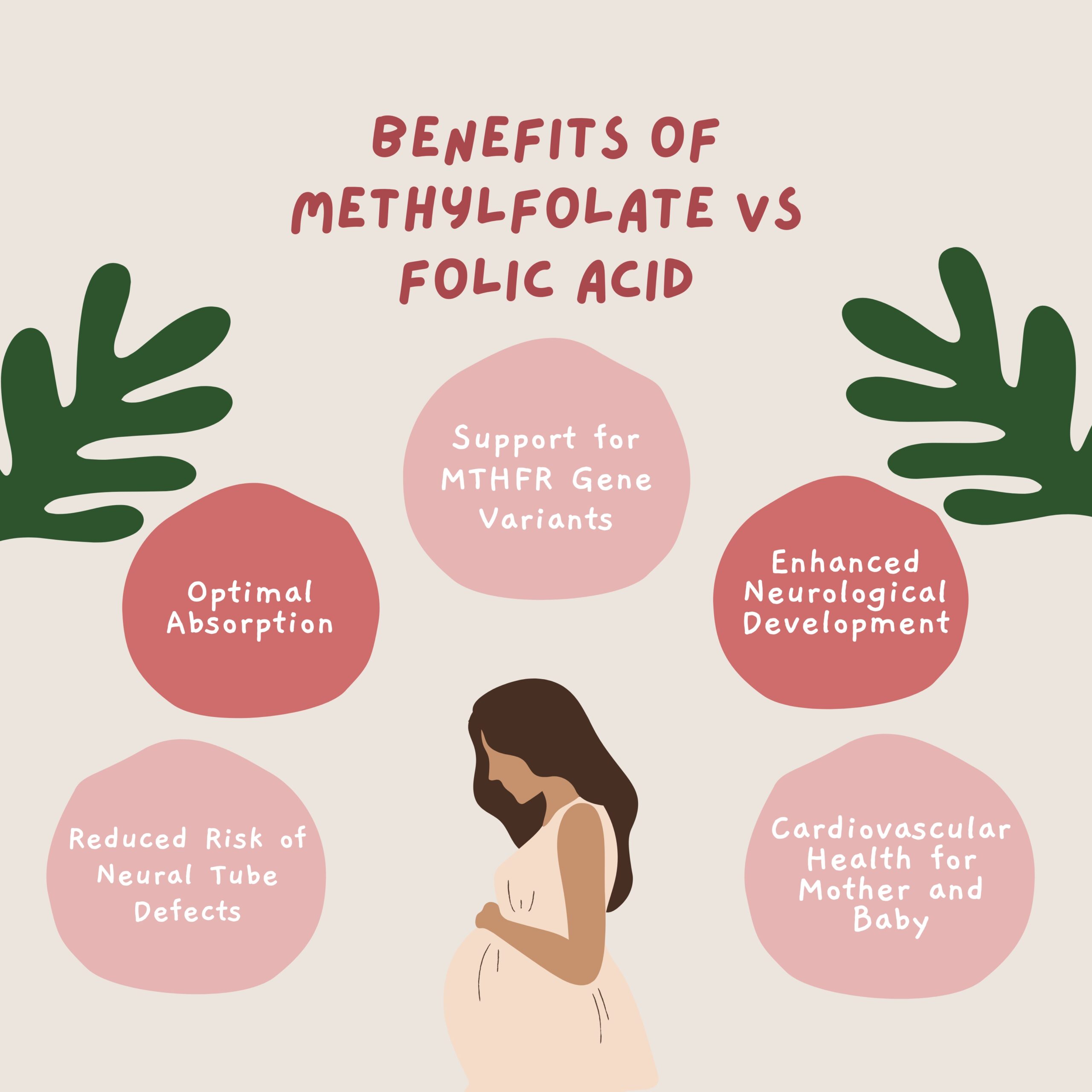Pregnancy is a transformative and joyous journey that requires proper nutrition to support the developing fetus. Among the essential nutrients needed during this critical phase, folate stands out as a vital component for preventing birth defects and promoting optimal growth. However, not all forms of folate are equal. In recent years, methylfolate, the active form of folate, has gained attention for its superiority over folic acid, the synthetic form commonly found in prenatal supplements. In this blog post, we’ll explore the specific benefits of methylfolate during pregnancy and why it may be a superior choice for expectant mothers.
- Enhanced Bioavailability for Optimal Absorption
Methylfolate boasts higher bioavailability compared to folic acid, making it easier for the body to absorb and utilize this essential nutrient. During pregnancy, the demands for folate increase significantly to support fetal neural tube development and overall growth. Methylfolate does not require enzymatic conversion in the body, ensuring a more direct and efficient utilization of the nutrient. This is especially advantageous for women who may have difficulty converting folic acid into its active form due to genetic factors, ensuring that the developing baby receives the necessary folate supply.
- Reduced Risk of Neural Tube Defects
Neural tube defects (NTDs) are serious congenital malformations that affect the brain, spine, or spinal cord of the developing fetus. Adequate folate intake, particularly during the early stages of pregnancy, is crucial in preventing NTDs. Methylfolate, due to its higher bioavailability, offers more reliable protection against NTDs compared to folic acid. Studies have shown that taking methylfolate supplements during pregnancy can significantly reduce the risk of neural tube defects and other related congenital abnormalities.
- Support for MTHFR Gene Variants
Nearly 40% of the population carry genetic variants of the MTHFR gene, which can impair the conversion of folic acid to its active form, methylfolate. For expectant mothers with these genetic variations, supplementing with methylfolate directly ensures that their bodies receive the active form of folate without relying on enzymatic conversions. This personalized approach helps ensure that all pregnant women, regardless of their genetic makeup, can efficiently utilize folate to support their own health and that of their baby. Since many pregnant people do not know their MTHFR status, it is beneficial for everyone to utilize methylfolate rather than folic acid.
- Enhanced Neurological Development
Folate, and particularly its active form, methylfolate, plays a crucial role in the early development of the fetal nervous system. Adequate folate levels have been linked to improved cognitive function and reduced risk of developmental disorders in children. Methylfolate supports the synthesis of neurotransmitters such as serotonin and dopamine, which are essential for regulating mood and cognitive function. By providing a more bioavailable and efficient source of folate, methylfolate may contribute to better neurological development in the growing fetus.
- Cardiovascular Health for Mother and Baby
Maintaining optimal folate levels during pregnancy is also beneficial for the cardiovascular health of both the mother and the baby. Folate, especially in its active form, helps in the conversion of homocysteine into essential amino acids, promoting a healthy cardiovascular system. Elevated homocysteine levels have been associated with an increased risk of preeclampsia, a potentially serious condition that can develop during pregnancy. Adequate methylfolate intake may help lower homocysteine levels and reduce the risk of preeclampsia, benefiting both the mother and the baby.
Choosing the right form of folate during pregnancy is crucial for the health and development of the growing fetus. Methylfolate offers distinct advantages over folic acid, providing enhanced bioavailability, reduced risk of neural tube defects, and better support for neurological and cardiovascular health. For expectant mothers, especially those with specific genetic considerations, opting for methylfolate supplementation can be a wise and proactive step towards ensuring a healthy and successful pregnancy. As always, it’s essential to consult with your midwife or OB before starting any supplementation regimen during pregnancy to ensure the best possible outcome for both mother and baby.








